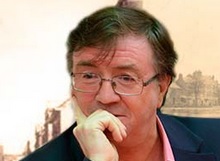
Bridgwater Town Council is Labour run. With 14 Labour 1 Tory and 1 LibDem the opposition is so divided there aren’t even any Party ‘groups’ to form an opposition. For the past year since the elections Bridgwater Town Council has operated through an innovative ‘Forum’ system opening up the council to the wider public and creating a mechanism for diversity, consultation and debate within the town and therefore it’s own effective internal opposition. These include a Town Transport Forum, a Youth Forum, a Twinning Forum and a Town Development Forum. Plans are for more. We asked some particularly unreasonable people to put some questions to Labour Town Council Leader Brian Smedley to explain what it’s all about
Q;Most people I talk to don’t have a clue what a councillor is, or what they do. Will Town Forums help to change this?
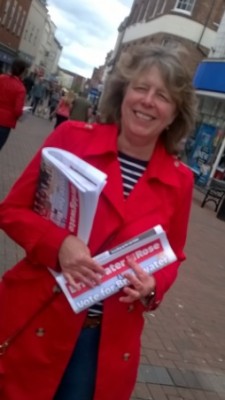
Then again most people I talk to couldn’t name you the great Leeds United team of 1969. I guess it’s a specialist interest. But it shouldn’t be. Councillors are important because they are elected to make decisions and they need to be kept an eye on to make the right decisions. Forums are a way to do this. They bring people right into the heart of the system. Decisions are made through open discussion and then an informed vote. The more ideas the more thinking needed and the wider dissemination of those ideas and crucial is the wider participation in that decision making process. I don’t deny we’re punching above our weight for a small town council. But again I’d cite the Don Revie years as an example of coming from nowhere…
Do elected officials really want to know what people want?
Well, they ought to. But at the end of the day they basically just have an opinion. That opinion needs to be an informed one and to achieve a programme they need to work with others, and that’s why we have a party system so that people can work together to achieve a common programme that’s been voted on. Bridgwater Labour Party ran a series of sessions on local issues and came up with a Manifesto which we circulated around the town in our newspaper the ‘Bridgwater Rose’ and said what we’d do if elected. We got elected (by an overwhelming majority) and now we’re doing that. One crucial policy was setting up Forums. The point of Forums is basically to bring the people with us and not leave them behind. The Labour Party is part of the Labour movement which is the movement of the people and not of any exclusive special interest group and we always need to remember that.
Aren’t these Forums just another talking shop, to pacify those who complain?
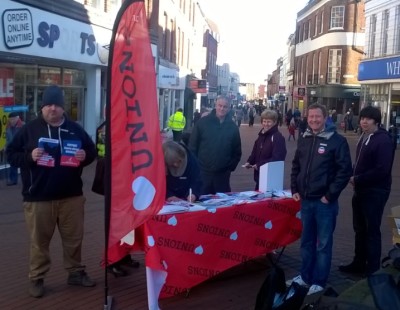
No you’re thinking of those ‘consultation’ questionaires sent round by various patronising councils – “is the council doing a.Great, b.Really Great or c.Why are you even bothering to ask me?”. The Forums have to be interactive and they have to be about talking but the most important thing about the Forums is they’re delegate based. This immediately widens the level of participatory democracy. Community organisations elect their delegates and the delegates report back to the bodies that elect them. That’s an immediate ripple effect and at the most basic grassroots level.
The Town Council hasn’t got any real power, so what can Forums achieve through them? What powers do you actually have?
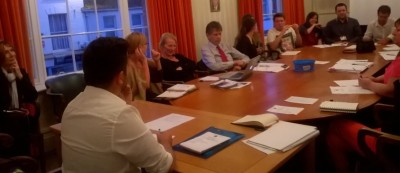
The Town Council doesn’t have a lot of power it’s true. But we want to change that. We remember the days of the Bridgwater Borough Council when the people of Bridgwater through it’s elected councillors ran pretty much all the services locally and at the level closest to the people of the town. Since 1974 and the creation of Sedgemoor District Council we lost those powers and what’s worse Bridgwater was submerged in a new council where it had less than 1/3rd the influence and in a permanent minority. We call this ‘direct rule from Cheddar’ and we want to change all that and regain those powers. Bridgwater didn’t have a town council from 1974 until 2003, but we campaigned for restoration and we finally won that. We now have precept raising powers and our own budget. We need to keep fighting until we’ve regained the fullest powers at the locallest level. If we just accepted our position as a Vicar of Dibley Parish council where a few dusty councillors sat around a room making the occasional even dustier decision then we’d just be accepting our place, and if you look at Bridgwater’s history, we’ve never sat back and done that.
Why do people feel so alienated from politicians at all levels?
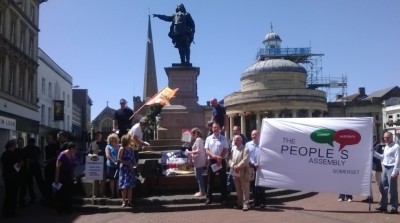
Well, politicians are people too. I don’t have any hard evidence for that of course. The thing is some people feel alienated because the system has alienated them from the whole purpose of democracy in the first place. Politicians are basically people elected by other people to represent them and the key to that being meaningful is accountability. By setting up systems where we can demystify that and involve more people in that process we’d hope to break down that alienation and restore faith in democracy as a workable system.
Aren’t the forums just for show? They’ve got no decision-making power, and the council is free to ignore its recommendations.

The legal position is that the 16 elected town councillors make the binding decisions for the town council because that’s what they’re democratically elected to do, so yes they can choose to ignore the recommendations from the Forums. In the same way they can ignore the voters who elected them in the first place or fail to carry out their manifesto that they got elected on. But this system is all about firstly keeping an eye on those councillors in action by bringing their electorate with them into the council chamber. The reason some councils and councillors end up ignoring their voters is because they leave them behind at the ballot box -they’ve been elected and when they’re in power it’s all about them. But it isn’t, it’s all about the people who want to get things done and have voted for it but don’t just want to leave it at that. So councillors ignore the Forums at their peril.
How democratic is it really? How can a few dozen self-selecting people represent a total population over 30,000
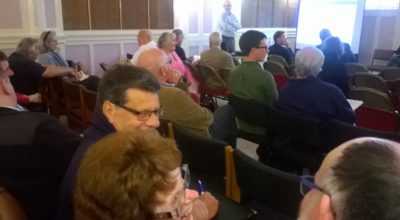
Well, let’s be honest, that’s how democracy works. Unless we want to run everything by referendum – and look at the chaos caused by the current Euro one where people are being told ‘Oi you! You WILL have an opinion even if you haven’t got one’, the best way to get things done is by electing people who are able, willing and prepared to get involved in the process of decision making, do the work, report back and inform their own electors and thereby be accountable. That’s what we already do with the 16 councillors of Bridgwater Town Council – each one actually represents about 2,000 people but the additional layer of the Forum widens and increases that accountability by bringing in other interest groups with their own hinterland.
Bridgwater Trades Council, for instance, which sends 2 delegates, in itself represents several thousand local workers who in turn send delegates to that body. Bridgwater & District Civic Society represents people with a dedicated interest in the towns heritage, then there’s Bridgwater Small Businesses Federation, the Chamber of Commerce and Bridgwater Industrialists -all self explanatory. So already you can see a wider range of interest and expertise in one room.
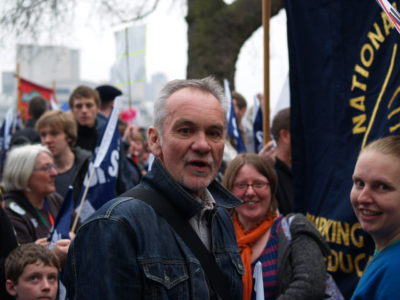
These groups can sit alongside other delegates who bring their own knowledge to the table – whether it’s specialist groups like Sustrans, or the Inland Waterways Association or spiritual dimensionaries such as the local Church leaders group, common interest groups like the extremely active Senior Citizens Forum, campaigning community groups like Bridgwater Forward, or the cultural activists of the Art Centre and the Engine Room they can all come together alongside residents groups from the estates, social innovators such as the community food initiative, social enterprise pioneers and likeminded people who have banded together to make sure their voice is heard such as MIND in Sedgemoor, the Dementia action alliance and Compass disability. Already, you can see, the town is more represented and councillors can make more informed decisions. That’s what it’s all about.
What’s the point? What do you hope to achieve?
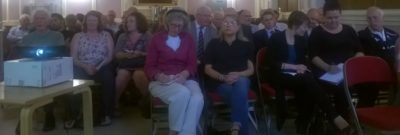
You don’t have to pass an exam to become a councillor. You just have to get votes. There’s no interview process and no test on your knowledge of how councils even work. So point 1 is widening the knowledge base of people elected to local government. Secondly, people form activist or campaigning groups to have a say. So point 2 is we’re opening the doors to give them that say. What will we achieve by that? We’re stronger together than we are apart and we need to move forward together so what we hope to achieve is uniting the people of Bridgwater behind their council. If the most representative elected body, the closest to them of all the councils, actually doesn’t represent them properly then of course there isn’t a point. Strengthening that Unity is both the point and the achievement
How do you maintain public interest and involvement?
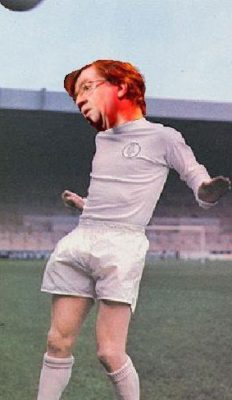
I think you first have to trust people. If we didn’t do that we’d close the doors, say ‘look, we know best’ and then we’d just do what we want and maybe tell people about it if they were lucky. But what we’re actually doing is saying to people ‘this is what we’re doing because it’s what we all want. We’ve all shaped this through being interested enough to get involved and then sticking with it’. We maintain public interest by not pulling up the drawbridge and retreating into our ivory towers. The point about revolutionary ideas is when you’ve unleashed the power of the people and they have a confidence in their ability to change things it’s an unstoppable force. So onwards to victory….and there the comparison with Leeds United ends…..
The next meeting of the Bridgwater Town Development Forum will be on Tuesday 12th July 7pm at Bridgwater Town Hall and the subject we’ll be looking at is the Parrett Barrier and the Maritime Future of Bridgwater
